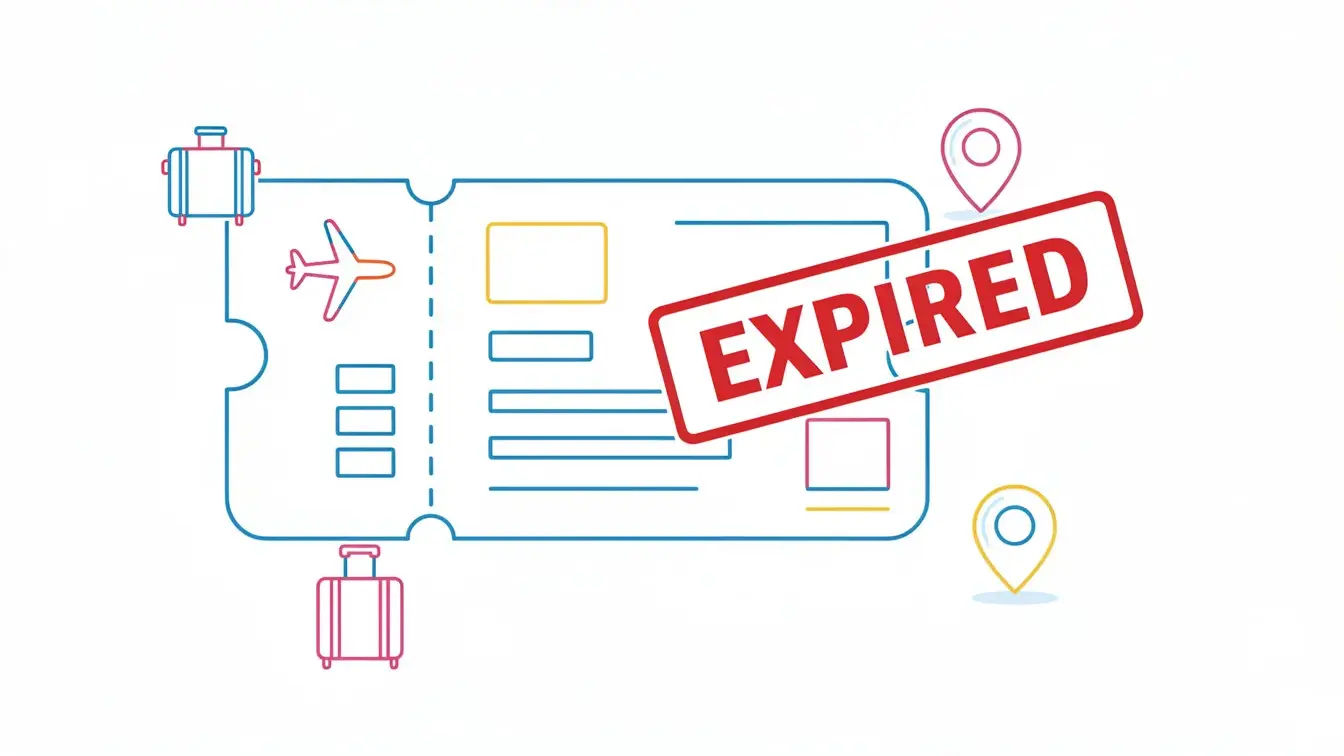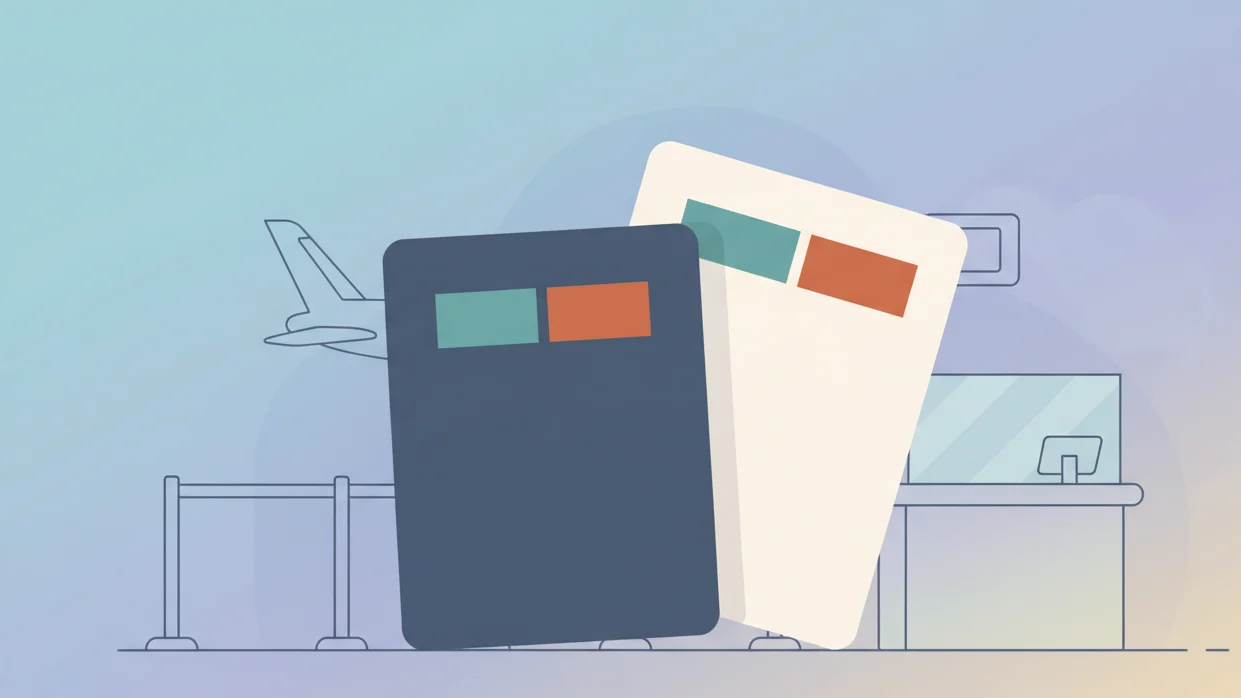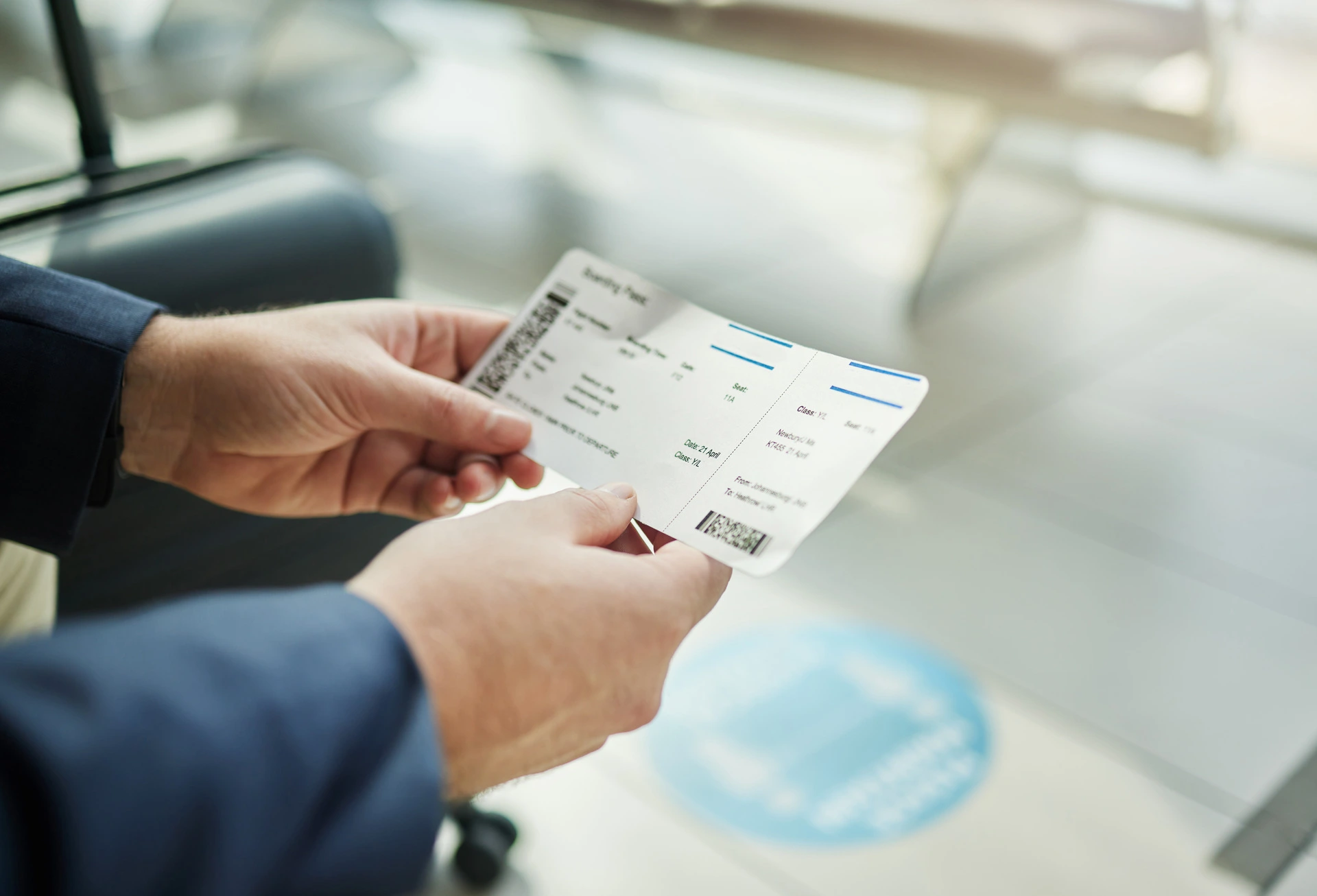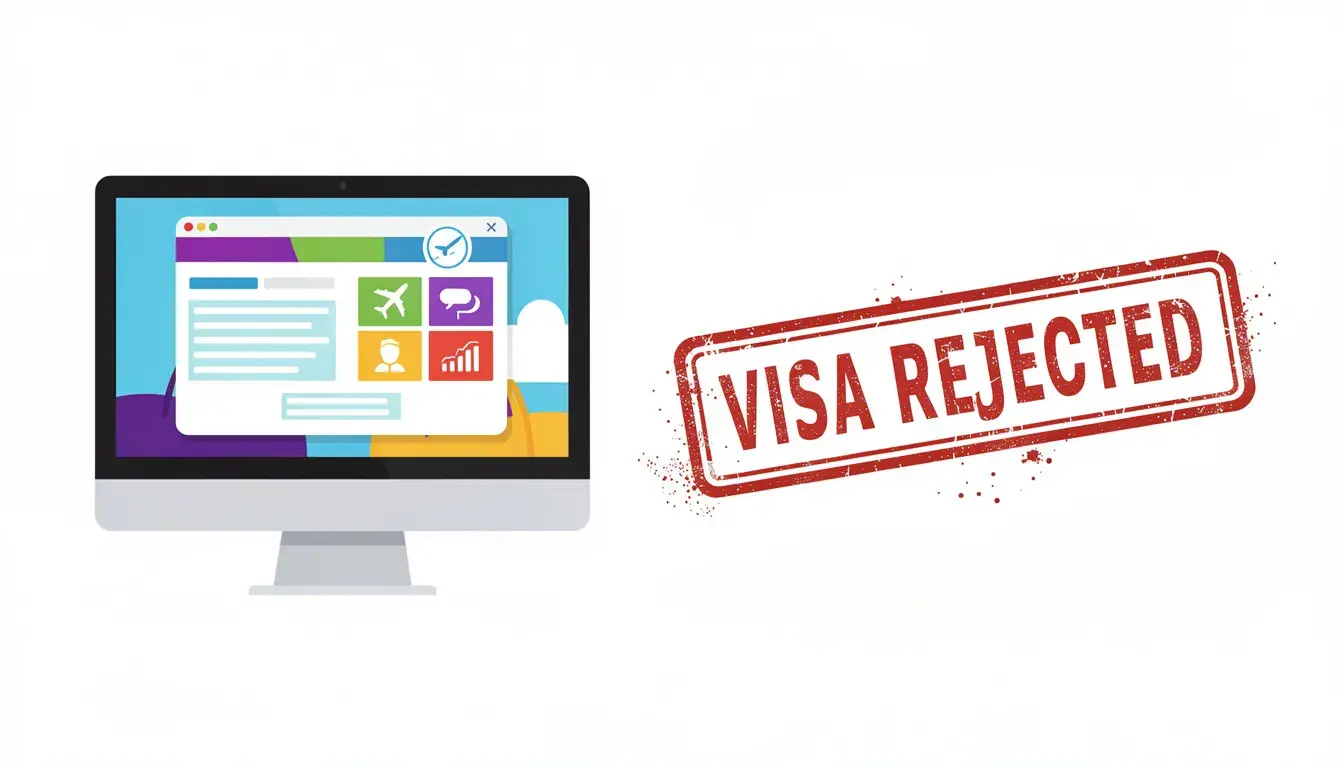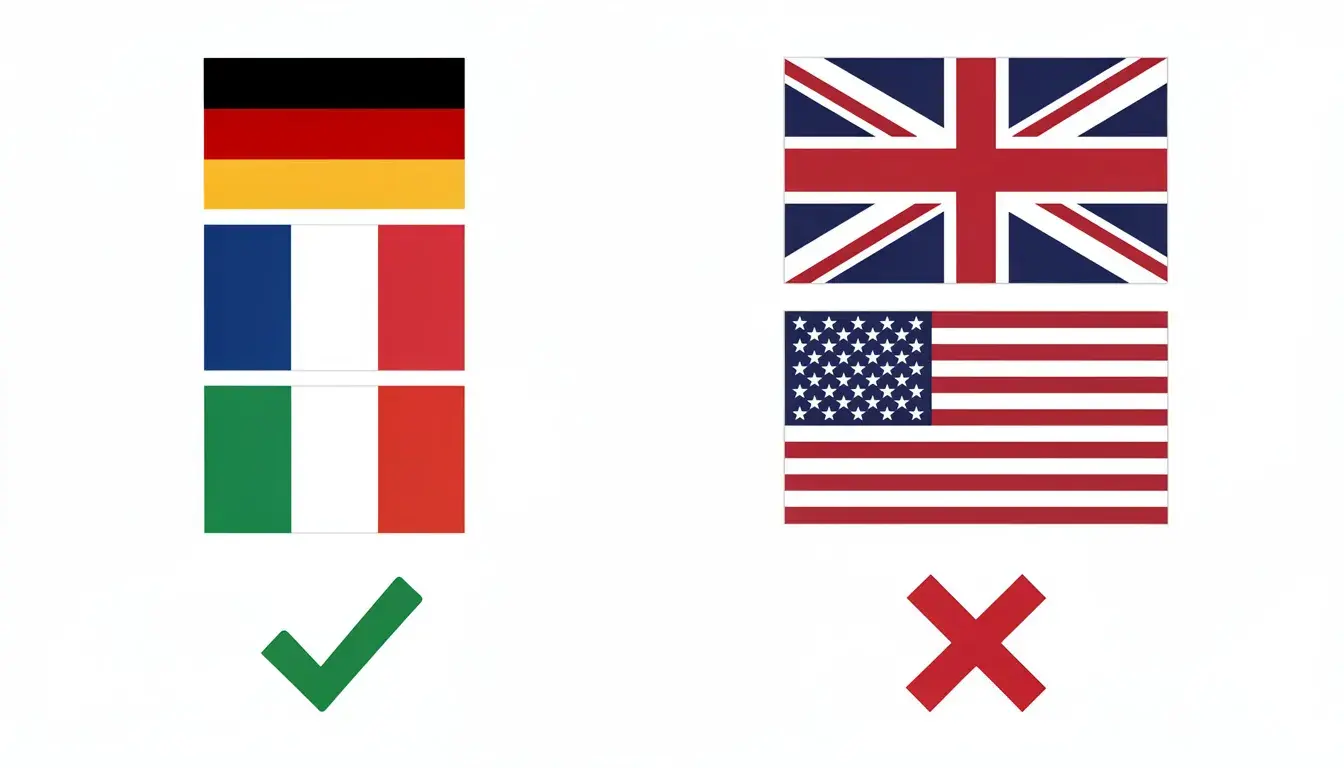Is Onward Flight Ticket For UK Visitor Visa Required?
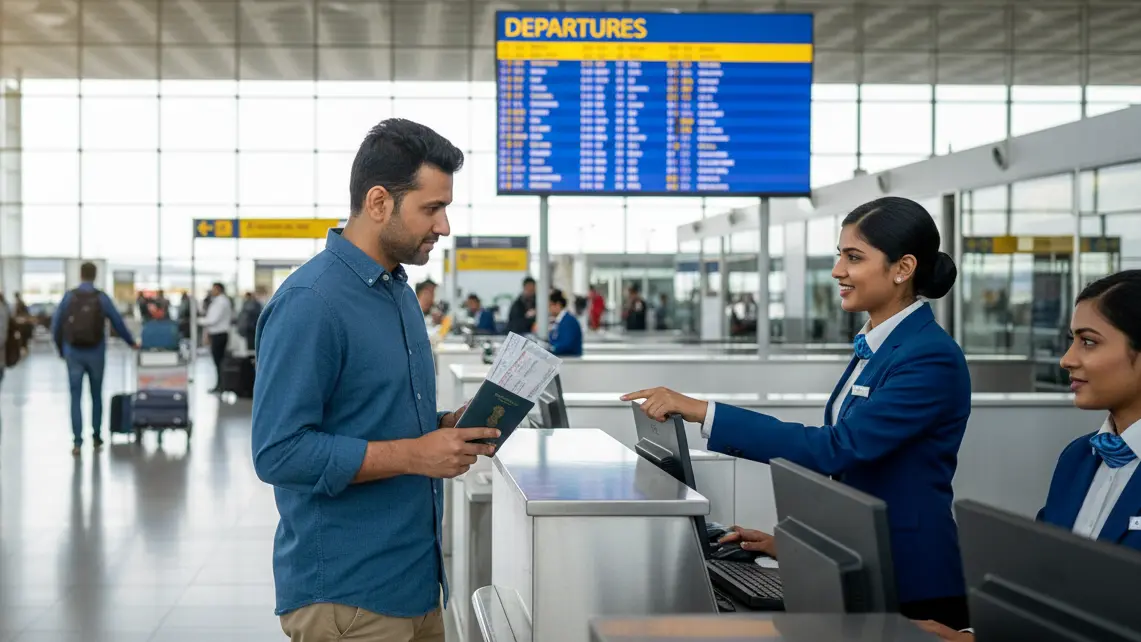
UK Visitor Visa Truth: Do You Really Need a Return Ticket or Not?
You have your UK visitor visa checklist open. Bank statements, photos, forms, and hotel bookings. All lined up. Then someone casually says, “By the way, you must show a confirmed return ticket or they will reject your visa.” Suddenly, the most expensive part of the trip feels like a gamble. A dummy ticket can provide that proof without the risk, ensuring your application stands strong.
We see this confusion all the time, especially among travellers from India. Some agents tell you a return ticket is compulsory. Friends say they flew on a one-way ticket without any issues. UKVI’s own website feels vague. For more insights on visa preparations, check our FAQ or explore blogs for tips.
For a UK Visitor Visa, UKVI does not require a confirmed return flight ticket before your visa is approved. Instead, officers want to see a clear, believable travel plan that proves you intend to return home. A verifiable onward or return reservation—even a dummy ticket with real PNR—is fully acceptable as long as it matches your DS-160 details, stay duration, and financial proof. This helps Indian travellers avoid spending ₹40,000–₹70,000 on a non-refundable return ticket while still satisfying UKVI’s “proof of onward travel” expectation.
Last updated: November 2025 — aligned with UKVI Visitor Visa guidance and current airport border-control practices.
Table of Contents
In this guide, we will cut through that noise. We will walk you through what is officially required, what airlines and border officers actually expect, and how you can prove onward travel smartly without risking a big non-refundable booking. Learn more about our About Us page to see how we support travelers like you. Secure your UK itinerary today with a quick dummy ticket booking.
What UKVI Really Wants From Your Travel Plans
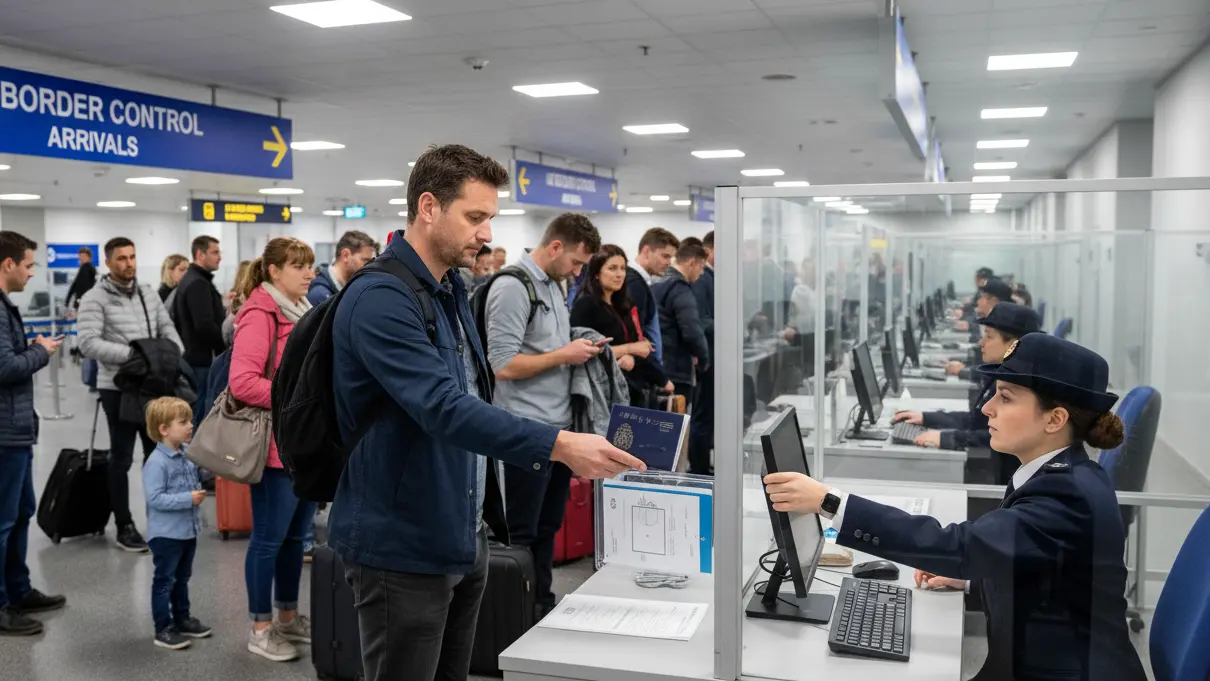
Before we get into the finer details, you should know one thing up front: the UK is very particular about how clearly you present your plans, but they are not rigid about the format in which you prove them. This is where many Indian travellers get caught between official guidance, travel agents, and half-correct advice from friends. So let’s break this down in a way that removes the guesswork.
When you look closely at the UK visitor visa rules, you will notice that UKVI never explicitly demands a paid, confirmed return ticket. What they want is firm evidence that you have zero intention of staying beyond the permission granted to you. That intention can be shown through your itinerary, your ties to India, and your financial capacity. A confirmed return ticket helps you make that case faster, but it is not the only way. If your visa file is ready but your flights aren’t, book a dummy ticket and submit with confidence.
Where UKVI Keeps It Vague On Purpose
If you read UKVI’s guidance for standard visitor visas, you will see that they ask for a “detailed travel plan,” not a “paid return flight.” This is deliberate. The UK understands that many travellers don’t want to spend tens of thousands of rupees on a ticket before their visa is approved. At the application stage, what matters more is whether your trip looks realistic and time-bound. To understand global standards, refer to the International Air Transport Association (IATA) guidelines on travel documentation.
ECOs (Entry Clearance Officers) skim through your form and supporting documents to see if everything connects. They check your intended dates, your purpose of travel, the hotels you booked, and how much money you have. If everything looks aligned and sensible, they don’t treat the absence of a paid ticket as a red flag. Expanding on this, consider how your overall profile influences decisions—strong employment ties or property ownership in India can outweigh the lack of a ticket.
How UK Visa Officers Read Your Itinerary
Visa officers have a pattern. They care about:
- Clear start and end dates. Your form should mention exactly when you plan to enter and leave the UK.
- Logical duration. A 5-day budget on a 20-day itinerary feels suspicious.
- Evidence of commitments back home. Things like job, business, or family responsibilities support your intention to return.
- Past travel behaviour. Strong track records in Schengen, UAE, Singapore, etc., help establish trust.
- Document consistency. If your hotel booking runs till 10 June but your itinerary claims you leave on 7 June, they will notice immediately.
When the officer sees consistency across documents, you gain credibility, and the need for a confirmed ticket becomes less important. This is why many well-prepared Indian applicants succeed without attaching a return booking. To bolster your case further, incorporating elements like a detailed daily schedule can demonstrate thorough planning.
Why Many Travellers Still Prefer To Show A Ticket Anyway
Even though UKVI does not demand a paid ticket, showing one makes your application stronger. It signals that your travel dates are fixed and that your exit from the UK is planned. For travellers with limited travel history or long intended stays, a return itinerary acts as a confidence boost for the officer reviewing your file.
Another reason is simplicity. A return booking organises your entire application’s narrative. It aligns your hotel stays, the cities you will visit, and the dates you specify in the application form. When everything lines up cleanly, your application feels intentional, not improvised. For those unsure about final dates, opting for flexible proofs like reservations can maintain this alignment without commitment.
When A Verifiable Reservation Is The Smart Middle Ground
A lot of Indian travellers feel stuck when they are not ready to buy the real ticket, but also don’t want to leave their application looking incomplete. In these cases, a verifiable reservation is often the best option.
You don't need to mention the basics of dummy tickets because you already know how they work. What matters most is credibility. Immigration officers are increasingly aware of fake screenshots and non-verifiable PDFs circulating online, especially through Telegram groups. Providing a booking that can be checked in the airline system instantly solves that problem.
This is where services such as dummyflights.com fit naturally. Travellers use verifiable reservations with a live PNR because they:
- Provide immediate proof of your onward plan.
- Match your itinerary dates perfectly.
- Avoid the financial risk of buying a full ticket too early.
It’s a simple way to give ECOs exactly what they expect without locking yourself into a costly decision. Moreover, these reservations can be updated multiple times if plans shift, offering peace of mind throughout the process.
What UKVI Doesn’t Say Out Loud But Definitely Looks At
Even though the rules avoid specifics, officers rely heavily on your overall credibility. A return ticket alone won’t save a weak application, but the absence of one can hurt you if everything else already looks shaky.
These are the hidden cues they evaluate:
- Does your job leave letter show realistic dates?
- Does your bank balance support the length of your trip?
- Are you a first-time traveller taking a long solo trip?
- Does your itinerary feel overly ambitious or vague?
When your documents tell a coherent story, the ticket becomes just one supporting piece rather than the deciding factor. To enhance this coherence, cross-reference all elements against UKVI's visitor visa criteria for alignment.
When Your Visa Is Approved, The Checks Are Not Over Yet
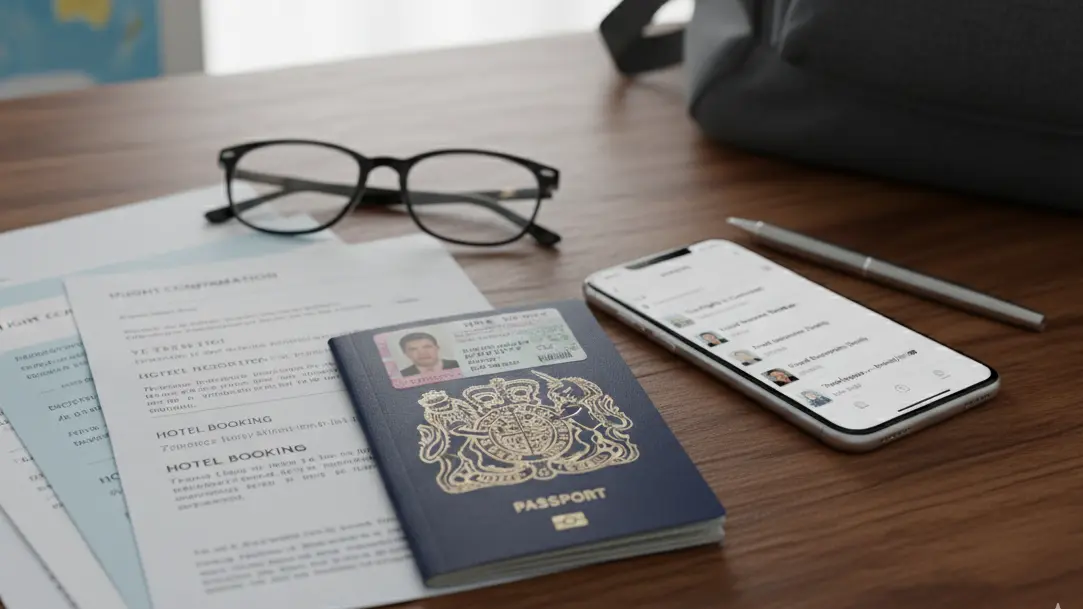
Getting that “visa granted” update feels like the finish line, but in reality, you are only through stage one. There are still two other gatekeepers who care a lot about your onward travel plans: the airline at departure, and the UK Border Force on arrival.
If you understand what each of them looks for, you can prepare once and use the same set of documents confidently at every stage instead of scrambling at the airport. Avoid risking money on non-refundable fares and use a verified dummy ticket booking instead. This preparation extends to understanding varying airline policies, which can differ by carrier and route.
What Counts Inside Your Visa Application File
At the visa stage, the person judging your case is the Entry Clearance Officer sitting with your online form and supporting documents. They are not worried about boarding rules or airline fines. Their main question is very simple:
“Will this person go back when they say they will?”
To answer that, they look at:
- Your proposed dates of travel. Start and end dates you fill in on the form.
- Your daily or weekly plan. Which cities you intend to visit, where you will stay, and for how long.
- Your ties to India. Employment, business, studies, family, and property.
- Your financial capacity. Bank statements, fixed deposits, and income proofs.
- Your history. Previous visas and trips, especially to countries with strong border controls.
Here, a return ticket or verifiable reservation is supporting evidence, not the hero of the story. If everything else proves you are a genuine visitor, the absence of a fully paid ticket usually does not break the case. On the other hand, if your ties, funds, or history look weak, even the best-looking return booking cannot fix the bigger issues. Building a robust financial narrative with 6-month statements can further solidify your position.
Why Airlines Suddenly Care So Much About Your Return Plan
Once you move to the airport, the focus shifts completely. Your visa is already in your passport. The airline staff at Delhi, Mumbai, Bengaluru, Hyderabad, or any other Indian city now have a different worry. If they board you and the UK refuses you at the border, the airline can be fined and must fly you back at their own cost.
So airlines often take a stricter stand about onward or return proof than the UKVI itself. At check-in, they might ask:
- “When are you coming back?”
- “Can you show your return ticket or onward booking?”
- “Where are you going after the UK if this is part of a longer Europe trip?”
Some airlines insist on seeing a confirmed return ticket, especially for first time travellers from India or for long planned stays. Others are satisfied with a clear, verifiable reservation that shows your intended exit date. It often depends on the staff on duty, the route, and your profile.
This is why you hear very different stories from friends. One person flew to London on a one-way ticket with no questions asked. Another was stopped at check-in in Mumbai until they produced proof of onward travel. The rules are the same, but the risk appetite of the airline and the specific staff member can vary. To mitigate this, always carry digital and printed copies of your reservations.
What UK Border Officers Look For At The End Of The Journey
Once you land in the UK, the final layer of scrutiny is at border control. Here, the officer already sees your visa sticker and knows the maximum duration allowed. They now want to check whether your immediate plan matches what you claimed when you applied.
If something about your profile triggers curiosity, they may ask:
- “How long are you staying in the UK?”
- “Where will you stay during this period?”
- “When are you flying back and from which airport?”
- “Do you have tickets or reservations to show that?”
For many travellers, the questions are light and quick. For some, especially with very long trips or unclear plans, the officer might ask to see bookings. Having clear proof of onward travel, hotel reservations, and maybe even a rough day-by-day outline helps you move through this stage calmly. Practice concise responses to common questions to build confidence.
One Itinerary, Three Audiences
If you step back, you are really telling the same story to three different audiences:
- To the visa officer: “I am a genuine visitor with strong ties to India and a clear timeline.”
- To the airline: “I will not become your liability. I have a plan to leave the UK.”
- To the border officer: “My actual visit matches what I declared in my visa file.”
The smartest way to avoid stress is to build one consistent itinerary that works for all three.
That means:
- Your visa form dates match your reservation dates.
- Your hotel bookings cover your stay logically.
- Your funds and leave approval match the duration you are showing.
- You can explain your plans in simple, confident sentences if asked.
Consistency across these elements not only satisfies requirements but also reduces processing times at each checkpoint.
Why Indian Travellers Need A Little Extra Preparation
As an Indian passport holder, you sit in a category that receives closer scrutiny by default. That does not mean you are unwelcome. It just means that officers and airlines want more reassurance that you are visiting for the right reasons and will leave on time.
This is why being casual about onward travel is risky. A loose answer like “I will book my return later” may work for someone with a very strong travel history or a powerful passport. For most Indian travellers, especially first-timers or those taking long breaks, that same statement can raise unnecessary doubts.
When you prepare as though each of these three checkpoints will ask you to prove your exit plan, you are rarely caught off guard. A well-thought-out itinerary and credible proof of onward travel turn these interactions from stressful interrogations into quick, routine checks. Additional tips include traveling with co-applicants if possible to share the scrutiny load.
The Many Ways You Can Prove Your Exit Plan Without Stress
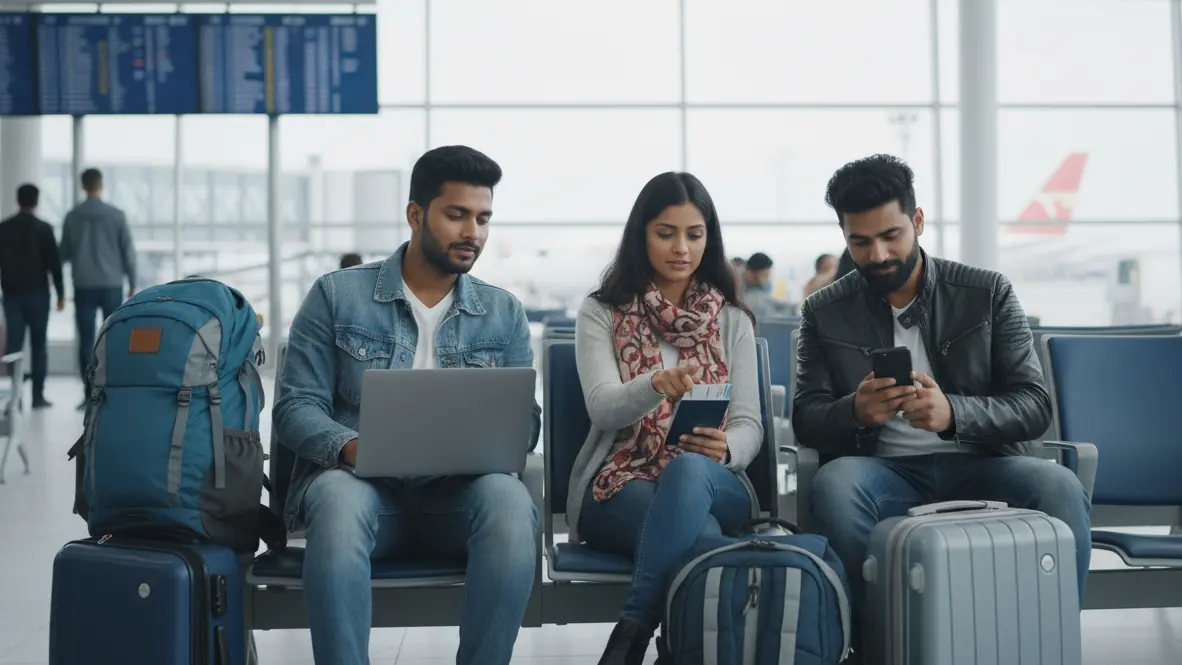
By the time you’re planning your documents, you already know that showing your onward journey is a smart move. What most travellers from India don’t realise is that you have more than one reliable way to prove it. Some options are strong, some are flexible, and some only work when everything else in your file is solid. The key is choosing the format that supports your story and fits smoothly into the overall visa application process.
Let’s look at the different forms of proof that usually work well for UK travel, and how officers assess the credibility behind them. Before your VFS appointment, book a dummy ticket that matches your planned travel dates. This approach is particularly beneficial for those balancing multiple visa requirements.
Return Tickets That Match Your Timeline Clearly
A straightforward round-trip ticket remains the cleanest form of proof. If your dates align with your hotel bookings, your plans to visit the UK, and any event confirmations you have, a return ticket instantly shows structure. Travellers who are planning short stays of up to six months often rely on this option when their itinerary is fixed.
This works especially well when you support it with required documents like hotel confirmations, an invitation letter for visiting family, or proof that you are attending meetings with a UK company. The more everything aligns, the stronger your credibility in the visitor route category. For business visitors, linking this to conference agendas adds further weight.
Return tickets also help when you’re travelling with family members, since officers want to see a coordinated plan. They also remove many doubts if your immigration history includes frequent or successive visits, where officers want reassurance that you aren’t slowly shifting your base away from your home country. In such cases, historical visa stamps serve as supplementary evidence.
Multi-Country Trips That Naturally Show Your Exit Plan
Many Indian travellers combine Europe with the UK. In these situations, your onward booking might show that you’re flying out of Paris or Amsterdam instead of London. That still counts as proof because it ties into your wider travel pattern.
This becomes especially useful for non visa nationals travelling with you, or when you’re navigating certain circumstances like a permitted paid engagement or site visits connected to a business trip. As long as the route is logical, officers accept it. It also helps if you’re applying through a visa application centre where staff check that your travel story is coherent before submission. Mapping out the full multi-destination route visually can enhance clarity.
Refundable Tickets When Your Schedule Is Not Fully Locked In
If your dates are still flexible, some travellers pick refundable tickets. They work well when you’re juggling things like a recreational course at an accredited institution, a short programme at a higher education institution, or an event that isn’t finalised yet.
Refundable tickets are expensive, though. And if you accidentally book through a low-cost airline with strict cancellation rules, you may lose most of your money. That’s why many travellers avoid this option unless they’re absolutely sure they’ll need to change their travel dates later. Comparing refund policies across airlines beforehand is advisable.
Still, in some categories like marriage, visitor visa, or student visa transitions, flexible options can help when plans depend on paperwork from an overseas institution or academic institution abroad. These scenarios often require coordination with educational bodies for supporting letters.
Verifiable Reservations For A Safer, More Affordable Option
When your dates are mostly decided but you don’t want to risk a full fare, a verifiable reservation often strikes the perfect balance. These bookings show your onward plan clearly while keeping your financial commitment low. Travellers choose this route when they want proof that can be confirmed in an airline system without paying for the entire ticket upfront.
A credible reservation works well for visitors coming for private medical treatment, a permitted activities trip, a formal qualification assessment at a UK institution, or even a short academic visitor stay. It also fits the needs of business visitors handling negotiation contracts, unpaid work linked to a registered charity, or attending a permitted paid engagement without committing financially too early.
Some reliable dummy ticket providers book you with major airlines like Emirates, Vistara, or British Airways depending on route availability. This helps because airline staff recognise these carriers easily during verification checks. The PNR code allows real-time validation, building instant trust.
A verifiable reservation is particularly helpful when you want to avoid visa rejections caused by mismatched dates, unclear onward plans, or inconsistent supporting evidence. It also helps first-time travellers who are worried about being refused entry at the border. For added security, request email confirmations from the provider.
What Immigration Officers Look For Behind The Document
Whatever format you choose, officers assess credibility far beyond the ticket itself. They look at your:
- Sufficient funds to cover living expenses
- Clear purpose under the immigration rules
- Application fee payment record
- Online application form or online application consistency
- Additional documents that support your plans
- Criminal record checks
- Whether you intend to access public funds
- Whether you need a visa under your category
They also consider pathways like student route transitions, work visa attempts, visiting family trips, or whether you’re a self-employed person taking extended periods away from your business. Ensuring your purpose aligns precisely with visa sub-categories prevents misinterpretation.
Even non-ticket factors matter. For example, travelling with a legal guardian, visiting Northern Ireland, plans at a state-funded school, or having multiple entry history in your passport can influence how your onward travel is viewed. These elements can be highlighted in a cover letter for emphasis.
When Your Exit Plan Becomes More Than Just A Ticket
For some travellers, your onward proof is tied to bigger questions. Officers may look at:
- Whether you’re part of a civil partnership or visiting
- Whether you’re joining family members temporarily
- Whether your purpose matches the permitted activities
- Whether you qualify for an academic visitor or a business trip
- Whether you plan to travel to the UK for medical treatment
- Whether you hold an electronic travel authorisation
- Whether you are trying to apply online for a category outside the standard rules
- Whether you are shifting towards successive visits that look risky
The ticket acts as a timestamp on your intentions. When everything else supports it, your onward plan becomes the final piece that brings your story together. Integrating personal statements can personalize and strengthen this narrative.
👉 Order your dummy ticket today to align perfectly with your UK visa needs.
When Your Plans Raise Eyebrows: Risky Patterns To Avoid
So far, we’ve looked at how to present a strong, believable travel plan. Now let’s flip the lens. There are certain patterns that instantly make airlines or officers nervous, especially when they see them in applications from India.
These are not automatic refusals, but they do trigger extra questions. If you understand them in advance, you can adjust your documents so your trip looks planned, not risky. Keep airlines and visa officers happy with a verifiable dummy ticket booking for your onward journey. Proactive avoidance of these pitfalls can significantly boost approval rates.
One-Way Tickets That Look Like A One-Way Move
A one-way ticket to the UK might look exciting on a travel app. On a visa officer’s desk or at a check-in counter, it often looks like a possible one-way relocation attempt.
If your profile shows limited ties to India, weak finances, or no previous international travel, a one-way booking can create the impression that you want to “see what happens” after you land. That’s exactly the kind of uncertainty they are trained to flag.
One-way tickets are especially risky when:
- You say you’re visiting for a short holiday, but don’t show how or when you’ll leave.
- You have already made long visits to other countries and are now planning another long stay.
- Your job or business documents don’t show a clear return date.
If you genuinely need flexibility, it’s safer to show at least a provisional exit plan that matches your stated dates, even if you plan to adjust later. This provisional approach often involves temporary reservations that can be extended.
Long Stays With Weak Support Behind Them
The UK allows generous visit durations, but the longer you plan to stay, the more questions you invite. A short 15-day visit for tourism is easy to understand. A four-month stay with vague plans and modest savings is not.
Long stays are not automatically suspicious. They become suspicious when your documents don’t back them up. For example:
- You show a plan to stay several months, but your bank balance barely covers a few weeks of realistic expenses.
- You claim to be on leave from work for a long period, but your employer's letter mentions a much shorter break.
- You are between jobs and planning an extended “break” in the UK with no clear structure.
In these cases, even a return ticket may not fully convince them. If you genuinely need a long stay, make sure your finances, leave proof, and onward travel all tell the same story. Detailed expense breakdowns can address funding concerns effectively.
“I’ll Decide After I Reach” – Why Vague Itineraries Are Dangerous
Indian travellers love flexibility. You might think, “Let me get there first, then I’ll decide what to do.” Unfortunately, that casual approach does not work well with immigration officers.
Vague answers like “I’ll figure the rest later” translate in their minds to “I might extend, change plans, or overstay.” If your onward travel is also vague or missing, that concern doubles.
You don’t need to plan every hour of every day. But you do need:
- Clear entry and exit dates.
- A simple city-wise breakdown (for example, 4 days in London, 3 in Edinburgh).
- Accommodation booked for at least the key parts of your stay.
- An exit plan that fits your itinerary.
The idea is not to restrict yourself. It is to show that you are arriving with a clear framework instead of a blank page. Including maps or timelines in your application can visually reinforce this structure.
Documents That Don’t Talk To Each Other
One of the fastest ways to lose credibility is to submit documents that contradict each other. Officers look at the pattern, not isolated pages. If each document tells a slightly different story, they start wondering which one reflects your real plan.
Common misalignments include:
- A return flight that shows a much longer stay than the dates mentioned in your form.
- Hotel bookings that end days before your alleged departure date, with no explanation.
- A sponsor letter that mentions different dates or purposes from your own statements.
- Bank statements showing large last-minute deposits that don’t match your declared income.
From their point of view, these are not “small mistakes.” They are warning signals. Before you submit or travel, read your documents as if you were the officer. If anything feels off or confusing, fix it. A pre-submission checklist can prevent these oversights.
Profiles That Attract Extra Scrutiny (And How To Handle It)
Some traveller profiles naturally get more questions. That doesn’t mean you should avoid travelling. It just means you need to prepare more carefully.
This can include:
- First-time international travellers planning long solo trips.
- Very young applicants with limited financial independence.
- People between jobs or freshly self-employed, with patchy income proofs.
- Travellers whose past visas were refused or whose previous stays were very close to the maximum allowed.
If this sounds like you, the solution is not to panic. It is to over-prepare your story:
- Make your onward travel crystal clear.
- Show strong ties back in India: job, business, studies, or family responsibilities.
- Include a simple, realistic itinerary that matches your budget.
- Carry supporting documents when you travel, not just at visa stage.
When your paperwork is stronger than the average traveller’s, you flip the script. Instead of looking like a risk, you look like someone who respects the rules and has nothing to hide. Seeking professional advice from visa consultants can provide tailored strategies for high-scrutiny profiles.
Fake Or Unverifiable Proof: The Fastest Way To Get In Trouble
There’s one risk that is not just “a bad idea” but genuinely dangerous: using fake tickets or hotel bookings that cannot be verified. Unfortunately, social media is full of sellers offering cheap “PDF tickets” that do not exist in any airline system.
Officers and airlines have seen these tricks too many times. They can check your booking in seconds. If they cannot find it, it doesn’t just weaken your case. It raises questions about your honesty, and that can affect future applications, too.
It’s always better to show a modest but truthful plan than a flashy, fake one. Credibility is your real currency here. When your onward travel proof is genuine, verifiable, and aligned with the rest of your documents, you reduce the chances of awkward questions and increase your chances of a smooth journey. Always prioritize providers with transparent processes and customer reviews.
How a Dummy Ticket Helps Your UK Visa Application
A dummy ticket serves as a verifiable flight reservation that mirrors a real booking, complete with a PNR code for instant airline verification. Unlike fully paid tickets, it incurs no financial commitment, allowing unlimited date changes until you're ready to purchase the actual flight. This flexibility is crucial for UK visitor visas, where timing your bookings post-approval prevents unnecessary losses.
For Indian applicants, where scrutiny on intent to return is high, a dummy ticket bridges the gap between vague itineraries and rigid proofs. It demonstrates a concrete exit plan without the upfront cost, often accepted by UKVI, airlines like Air India or British Airways, and border officials. Services like those from dummyflights.com ensure the reservation is from reputable carriers, enhancing its legitimacy.
In practice, integrating a dummy ticket into your application involves downloading the PDF itinerary and PNR details immediately after generation. Submit it alongside your form, hotels, and ties documents. Post-approval, update dates as needed—many users report seamless transitions to real bookings. This method has supported thousands in avoiding rejections due to incomplete travel proofs, making it a staple for savvy travelers.
Beyond visas, dummy tickets aid in scenarios like Schengen extensions or multi-leg trips, where onward proof is mandatory. Their 24-48 hour validity window (extendable) fits perfectly into application timelines, and the low cost—often under $10—makes it accessible. Always verify the provider's track record to ensure PNR authenticity, as this directly impacts credibility.
What Travelers Are Saying
Final Boarding Thoughts Before You Fly To The UK
A confirmed onward ticket is not always officially mandatory for a UK visitor visa, but in real life, it is strongly expected. Visa officers, airline staff, and border officers all want to see the same thing: a clear, believable plan to leave the UK on time.
If your itinerary, dates, funds, and onward travel all line up, you’re already ahead of most applicants. Prepare one solid story, back it with genuine, verifiable proof, and carry those documents confidently. That way, your focus can stay where it belongs: actually enjoying your trip, not arguing about it at the airport. If your dates might change, book a dummy ticket now and update your plans later with ease. Remember, post-visa adjustments are common, so flexibility in proofs pays dividends.
To wrap up, always double-check alignment: does your dummy ticket's dates sync with your leave letter and hotels? Does the PNR work in airline systems? Addressing these ensures a hassle-free process from application to arrival.
Why Travelers Trust dummyflights.com
dummyflights.com has been helping travelers since 2019, specializing exclusively in verifiable dummy ticket reservations. We've supported over 50,000 visa applicants with instant PDF deliveries and live PNRs from major airlines. Our 24/7 customer support team, composed of travel experts, ensures real, personalized assistance—no automated responses. As a registered business, we prioritize secure online payments and niche expertise in onward travel proofs, making dummyflights.com a reliable partner for your UK visa journey. Travelers choose us for our commitment to transparency and proven track record in high-stakes applications.
Related Guides
About the Author
Visa Expert Team - With over 10 years of combined experience in travel documentation and visa assistance, our team at dummyflights.com specializes in creating verifiable travel itineraries. We’ve helped thousands of travelers navigate visa processes across 50+ countries, ensuring compliance with embassy standards.
Trusted Sources
Important Disclaimer
While our dummy tickets with live PNRs are designed to meet common embassy requirements, acceptance is not guaranteed and varies by consulate or country. Always verify specific visa documentation rules with the relevant embassy or official government website before submission. dummyflights.com is not liable for visa rejections or any legal issues arising from improper use of our services.


